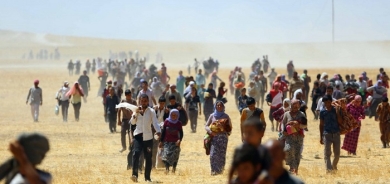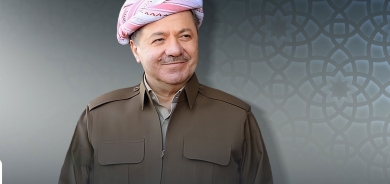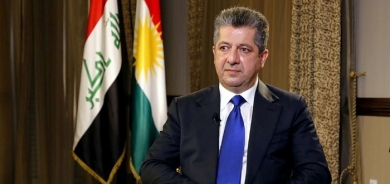To build a ‘greater Turkey' with the Kurds
April 8, 2013
From Media

The ultimate fear of the Turks about the Kurdish demands is that they will eventually lead to the division of the country and an independent Kurdistan will be carved out of Turkey.
This fear that prevails among the Turks is an important stumbling block for the current peace process. To overcome this, new language that constructs a common future for the Turks and the Kurds within a “greater Turkey” has been formulated and spoken by both Kurdistan Workers' Party (PKK) leader Abdullah Öcalan and the Turkish government.
Let's first explore the roots of the fear and then address the new “remedy” that is expected to overcome this psycho-historical resistance to the peace negotiations with the Kurds.
“Division” of the country is a historically deep-rooted fear. The Turkish national psyche is shaped by the history of dismantling of the late Ottoman Empire along the ethnic lines in its last decades and of the rise of the new Turkish state with the war of independence. The war of independence waged at the end of WW II was a resistance to an international/imperialist plot to deprive the Turks of a state within Anatolia. The war halted further disintegration and a new state was established by the Turks as their homeland.
Thus, the traumatizing experience of the wars for statehood in the last century constituted an important part of national memory. Further division of the country, any kind of partition of Turkey is anathema to the Turks. It is important to note that this is not only the attitude of the ultra-nationalist Turks, but also rather a common position.
For the last decade or so, we usually attributed the Sevr syndrome (the fear that Turkey will be partitioned by imperialist Western powers) to the Kemalist nationalists. In fact, the fear is more widespread and deeper in the psyche of Turks, including the conservatives and Islamist groups.
As a result, many Turks believe that the Kurdish question is the creation of foreign powers that wish for Turkey to be divided. Any political settlement first needs to reverse such perceptions.
In order to “sell” any peace model to the Turkish people, the government must persuade the people that a solution will not be the beginning of a disintegration process for Turkey. Yet this is obviously difficult, given the culture of fear and sense of insecurity that affect the attitude of the Turkish people.
To overcome this difficulty, the government and Öcalan seem to have developed a new approach, an approach that visualized a common future for the Kurds and the Turks within a “greater Turkey.”
In order to overcome the fear of partition both the government and the PKK hint that a solution to the Kurdish question may indeed result in a greater Turkey, a Turkey expanded to the Middle East. This may not be an expansion of Turkey with the Kurds in it territorially. It is, for the moment, a neo-Ottoman geo-strategic dream in which Turkish influence would expand into the Middle East via the Kurdish presence in the region and the Kurds would claim ownership over the “greater Turkey” through the new partnership. This is what Öcalan implies when he refers to a union of the Anatolian and Mesopotamian people. That Öcalan and the Peace and Democracy Party (BDP) leaders talk of re-opening the National Pact (Misak-ı Milli) debate is a clear hint that a Kurdish settlement would not divide Turkey up but it will expand its boundaries.
All of these somehow correspond to the Justice and Development Party's (AK Party) vision of a greater Turkey and the role it should play in the neighborhood.
A neo-Ottoman geopolitical vision that imagines a partnership between the Turks and the Kurds, just like in the years of the War of Independence, seems to be the ground on which the government and Öcalan are trying to build a peace. Besides, a pax-Ottomana with its multi-ethnic structure and autonomous regions is expected to resolve the identity claims of the Kurds. In short, a neo-Ottoman strategic dream within a pax-Ottomana appears to be the wider framework for a political settlement between the government and Öcalan. And this is believed to be a “sellable” good to the Turkish people.
By Ihsan Dagi for Today's Zaman











